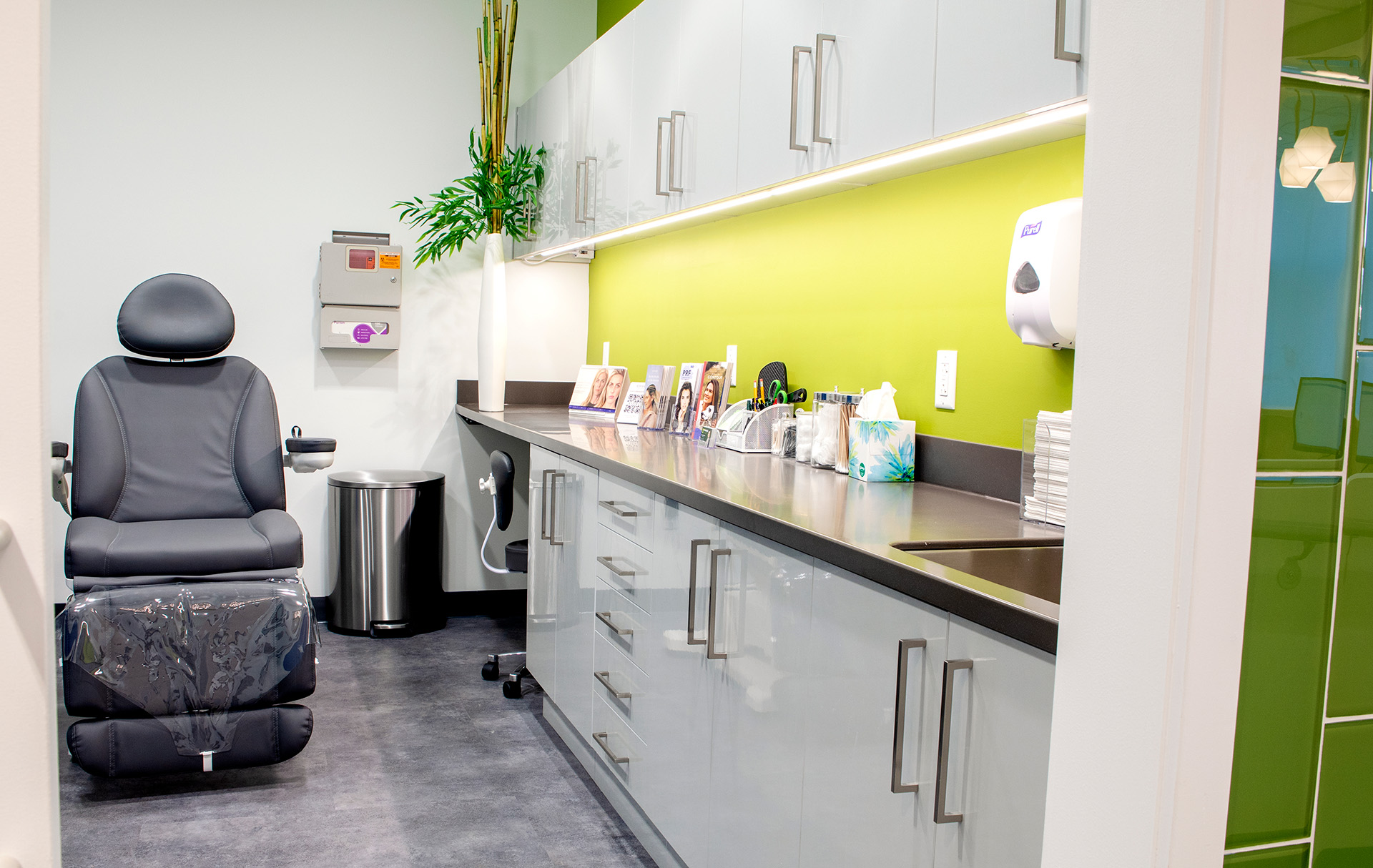
Are you one of the many individuals who experience dental anxiety at the mere thought of visiting the dentist? If so, you're not alone. Dental anxiety affects a significant number of people and can prevent them from seeking the dental care they need. Fortunately, there is a solution: sedation dentistry.
Sedation dentistry allows patients to receive necessary dental treatments while feeling calm and relaxed. Your trusted Philadelphia oral surgeon and sleep dentist, Dr. Cindi Nguyen, is here to explain your options for sedation dentistry and why sedation may be right for you.
Sedation dentistry involves using medication to induce a relaxed and anxiety-free state. It can range from minimal sedation, where the patient is deeply relaxed but awake, to deep sedation or general anesthesia, where the patient is in a sleep-like state or completely unconscious. While local anesthetic targets a specific area, sedation aims to provide comfort and reduce anxiety throughout the procedure. Dr. Ngyuen often recommends sedation to patients with dental anxiety or extensive procedures.
Nitrous oxide, also known as laughing gas, is a type of inhaled sedation used to help patients relax during dental procedures. It‘s often combined with local anesthetic to enhance comfort. Nitrous oxide is administered through a small mask placed over the nose and induces a calm and euphoric state. It reduces anxiety and discomfort, making the dental experience more pleasant for patients. Unlike other forms of sedation, the effects of nitrous oxide wear off quickly, allowing patients to resume their normal activities shortly after the procedure.
IV sedation involves the administration of medication through an intravenous (IV) line to induce a state of deep relaxation and sleep during the dental procedure. Our Philidelphia oral surgeon commonly uses this method for more complex treatments or for patients with significant dental anxiety. While under IV sedation, patients can respond to instructions from the dentist, but they have little to no memory of the procedure afterward. This type of sedation ensures a comfortable and pain-free experience.
General anesthesia is the deepest form of sedation used in dentistry. It involves the delivery of anesthetic medication that puts the patient into a state of deep sleep. General anesthesia is typically reserved for complex or invasive dental surgeries or for patients with severe dental anxiety. It requires careful monitoring of vital signs and airway management by an anesthesiologist or trained dental professional to ensure the patient's safety.
Most sedatives used in sedation also have mild pain-relieving qualities. With sedation, patients experience reduced or no pain during the procedure. This can be especially helpful for patients who are resistant to local anesthetics.
Sedation dentistry helps alleviate anxiety and fear associated with dental procedures, creating a more comfortable environment for patients.
Sedation induces a deep state of relaxation, making it easier for patients to undergo dental treatments without experiencing heightened stress or tension.
Patients who struggle with dental anxiety or have difficulty sitting still for extended periods can benefit from sedation dentistry, as it promotes cooperation during the procedure.
Sedation allows dentists to work more efficiently, as patients are relaxed and less likely to experience discomfort.
For individuals with a sensitive gag reflex, sedation dentistry can help minimize or eliminate this reflex, allowing for smoother and more comfortable dental procedures.
Sedation can induce temporary amnesia or partial memory suppression, ensuring that patients do not remember the details of the dental procedure, which can be beneficial for individuals with dental phobias or traumatic dental experiences.
Patients who require extensive or multiple dental procedures can benefit from sedation dentistry, as it allows for longer treatment sessions without causing significant discomfort or anxiety.
Sedation can help patients with sensory sensitivities, such as those with autism spectrum disorders, to tolerate dental treatments more comfortably by reducing sensory overload.
Sedation relaxes the muscles, reducing muscle fatigue that may occur from prolonged dental procedures, enabling the dentist to work more effectively and comfortably.
Eligibility for sedation dentistry depends on several factors, including the patient's medical history, overall health, and the nature of the dental procedure. Here are some considerations for determining who qualifies for sedation dentistry:
Preparing for a sedation appointment is essential to ensure a smooth and worry-free experience. Here are some important guidelines to follow:
Dr. Nguyen is a highly trained and experienced oral surgeon specializing in sedation dentistry. Unlike general dentists, oral surgeons have received specialized training in administering anesthesia and offering a wide range of anesthetic options to ensure patient comfort and safety.
To administer general anesthesia in the office, Dr. Nguyen has completed rigorous training, including at least three months of hospital-based anesthesia training. In addition, she has successfully undergone an in-office evaluation conducted by a state dental board-appointed examiner.
Dr. Nguyen's evaluation includes observing a surgical procedure with anesthesia, testing emergency handling skills, and equipment inspections. Obtaining a state examiner license, renewed biennially with anesthesia-focused education, showcases Dr. Nguyen's expertise. Trust Dr. Nguyen for safe sedation dentistry and up-to-date care during dental procedures.

Like any medical procedure, sedation dentistry carries potential risks and side effects. However, when performed by a qualified and experienced dentist, the risks are minimal. Common side effects may include drowsiness, dizziness, nausea, and a temporary decrease in coordination.
Serious complications are rare but may include allergic reactions to the medication or breathing difficulties. Your dentist will discuss the potential risks and side effects with you and take appropriate measures to ensure your safety throughout the procedure.
No, it’s not safe to drive yourself home after undergoing sedation dentistry. The effects of sedation can impair your coordination, reflexes, and judgment, making it unsafe to operate a vehicle. You should arrange for a responsible adult to accompany you to your appointment and drive you home afterward.
Sedation dentistry can be suitable for children in certain cases. It’s commonly used for children with dental anxiety, special needs, or difficulty sitting still during dental procedures. However, sedation in children requires careful evaluation by a qualified dentist or oral surgeon who specializes in pediatric sedation. The dentist will consider factors such as the child's age, medical history, and the complexity of the procedure to determine if sedation will work.
Whether or not your dental insurance covers sedation dentistry varies depending on the insurance plan. Some dental insurance plans provide coverage for certain types of sedation in specific situations, such as extensive procedures or patients with specific medical conditions.
You should contact your dental insurance provider directly to inquire about the specific coverage details. Your dentist's office may also assist you in determining the extent of your coverage.
Dental anxiety should never prevent you from achieving optimal oral health. With the help of sedation dentistry, you can overcome your fears, receive the dental care you need, and maintain a healthy, beautiful smile. By choosing a reputable Philadelphia oral surgeon and sleep dentist like Dr. Nguyen, you can rest assured that you’re in capable hands.
Don't let dental anxiety hold you back any longer. Schedule a consultation with Philadelphia Oral & Maxillofacial Surgery by dialing 215-273-3223. We serve new and returning patients from Philadelphia and surrounding areas such as Springfield, Kensington, and Levittown, PA.